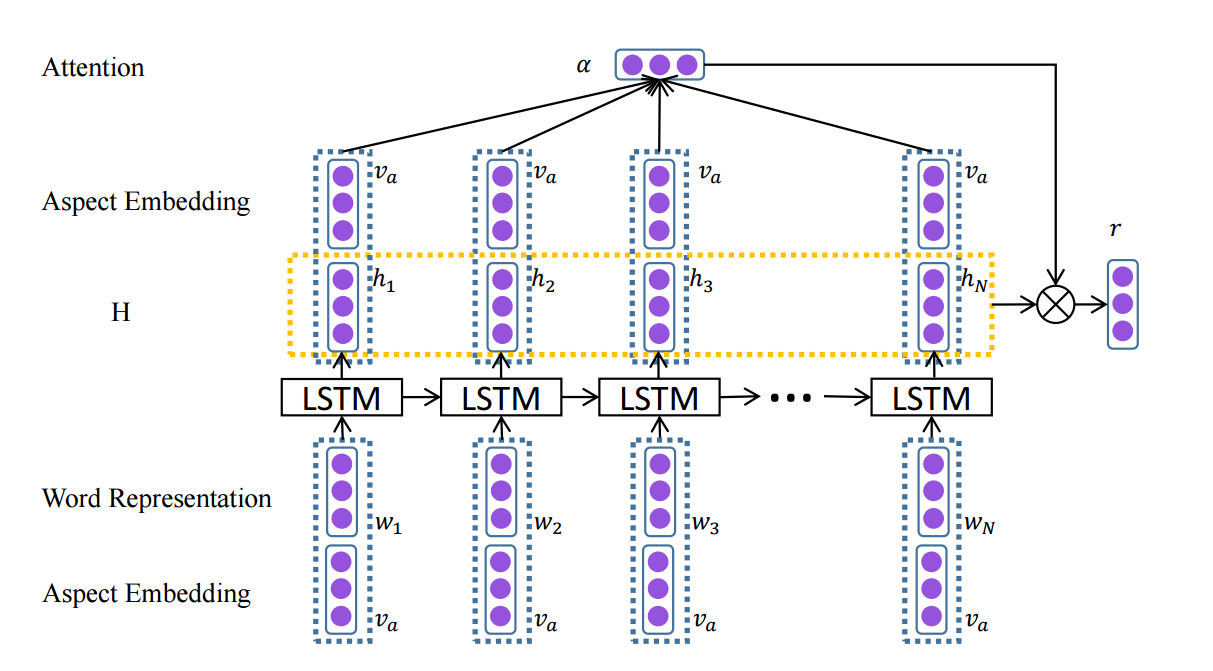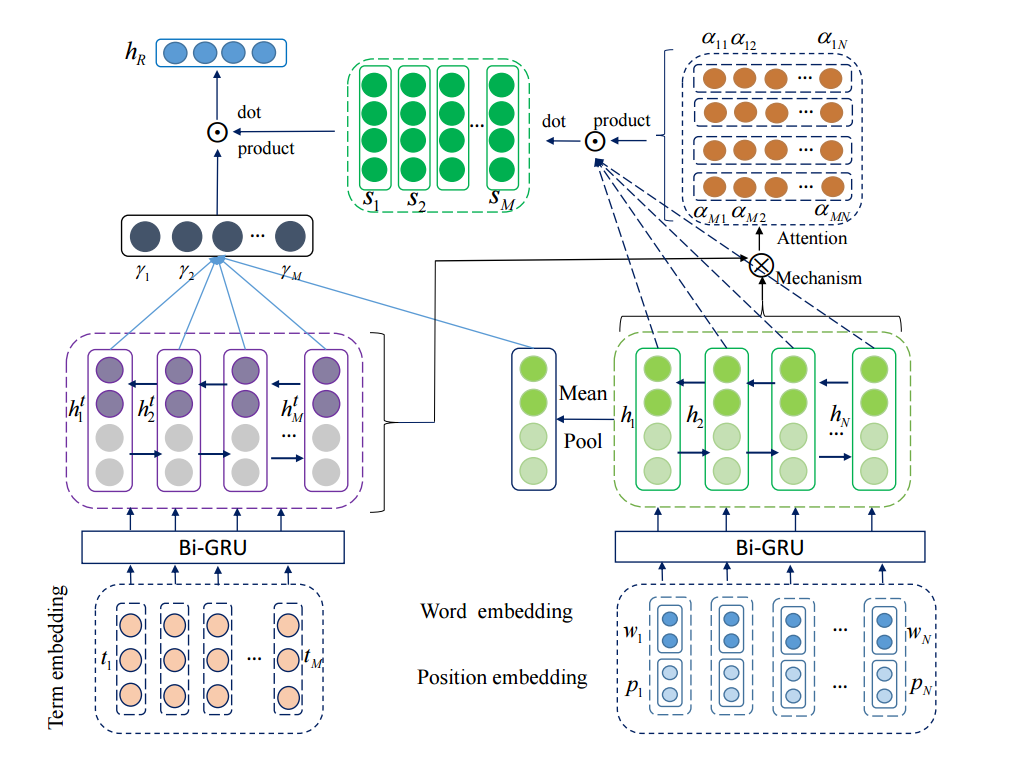PyTorch implementation of Gu et al.'s COLING 2018 work.
- PyTorch >= 0.4.0
- NumPy >= 1.13.3
- Python 3.6
- GloVe pre-trained word vectors:
- Download pre-trained word vectors here.
- Extract the glove.twitter.27B.zip and glove.42B.300d.zip to the
\glove\folder.
Based on the restaurant and laptop dataset of SemEval-2014 Task 4.
| Polarity | #Positive | #Negative | #Neutral |
|---|---|---|---|
| Train | 2164 | 807 | 637 |
| Test | 728 | 196 | 196 |
| Polarity | #Positive | #Negative | #Neutral |
|---|---|---|---|
| Train | 994 | 870 | 464 |
| Test | 341 | 128 | 169 |
Train the model:
python train.py --model_name pban --dataset restaurantShow help message and exit:
python train.py -hTang, Duyu, et al. "Effective LSTMs for Target-Dependent Sentiment Classification." Proceedings of COLING 2016, the 26th International Conference on Computational Linguistics: Technical Papers. 2016. [pdf]
Wang, Yequan, Minlie Huang, and Li Zhao. "Attention-based LSTM for aspect-level sentiment classification." Proceedings of the 2016 conference on empirical methods in natural language processing. 2016. [pdf]
Gu, Shuqin, et al. "A Position-aware Bidirectional Attention Network for Aspect-level Sentiment Analysis." Proceedings of the 27th International Conference on Computational Linguistics. 2018. [pdf]
| Model | In Paper | This Code |
|---|---|---|
| LSTM | 74.28 | 77.68 |
| ATAE-LSTM | 77.20 | 78.30 |
| PBAN | 81.16 | 80.89 |
| Model | In Paper | This Code |
|---|---|---|
| LSTM | - | - |
| ATAE-LSTM | 90.90 | 90.26 |
| PBAN | 91.67 | 92.32 |
| Model | In Paper | This Code |
|---|---|---|
| LSTM | 66.45 | 71.00 |
| ATAE-LSTM | 68.70 | 71.32 |
| PBAN | 74.12 | 74.76 |
| Model | In Paper | This Code |
|---|---|---|
| LSTM | - | - |
| ATAE-LSTM | 87.60 | 87.63 |
| PBAN | 87.81 | 87.42 |
- Some of the code is borrowed from songyouwei.
- Using this code means you have read and accepted the copyrights set by the dataset providers.
MIT



